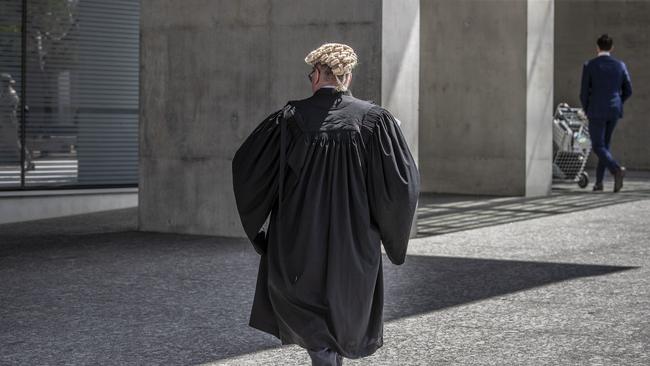‘Broken structure’: Canberra barristers forced to pick up Legal Aid tab
Canberra barristers are being forced to foot the bill for their client’s cases due to the chronic underfunding of Legal Aid, as the ACT government slashes critical funds to community legal services.

Criminal barristers in the nation’s capital are being forced to foot the bill for their client’s cases due to the chronic underfunding of Legal Aid, as the ACT Labor-Greens government slashes critical funds to community legal services while boosting support for prosecution bodies in sexual assault cases.
Fresh data uncovered by The Weekend Australian highlights a shocking disparity between the millions of dollars funnelled into rape prosecutions since the Territory underwent a review into sex crimes, while the government continues to cut funds for defence barristers.
While the government this year committed more than $3m over two years to the Office of the Director of Public Prosecutions for sex matters alone, Legal Aid ACT has received additional government funding of $1m for all Territory criminal matters over the financial year.
“A lack of adequate funding has resulted in a system that forces barristers, often those least able to afford it, to subsidise the cost of the broken legal aid structure,” ACT Bar Association president Brodie Buckland said.
“If the current situation is not addressed, the criminal justice system could suffer irreparable harm, leading to an erosion in quality and barriers to access to justice.”
The ACT government this year committed increased funding of $3.411m over two years to the ODPP to fund two extra Crown prosecutions and four more Crown advocates to “support the continued reinvestigations of sexual assault cases identified as requiring possible further action”.
Another $242,000 has been provided for a senior prosecutor in the ACT’s Police Sexual Assault and Child Abuse team.
But a comparison of legal aid fees schedules for criminal matters between 2011 and 2023 show the rates of lawyers acting in criminal matters have not been keeping in line with inflation.
A barrister appearing in the ACT Supreme Court will receive $2210 for trial preparation and the first day of trial, and $1380 for every additional day. In 2012, the fee was $1920 for trial preparation and the first day of trial, then $1200 onwards.
“Fees for legal aid have not kept up with inflation and have remained stagnant for over a decade, resulting in severe under-compensation for barristers,” Mr Buckland said.
“Legal aid rates are usually 25 per cent – 33 per cent of what a barrister would earn on the same matter in private practice.”
Mr Buckland said barristers were often “penalised for providing high-quality service”.
“For instance, in a trial, they may have to block out their schedule for an estimated trial length, but if the trial overruns or is cancelled, they bear the financial loss,” he said.
“If a trial is cancelled after significant time is invested, barristers are often only paid a fraction of the expected amount.”
Mr Buckland said the low legal aid fee schedules were not the fault of the Legal Aid Commission, but instead “long-term underfunding by both the commonwealth and territory govern-ments”. He said barristers were being “formed to fund a system that is not sustainable”.
“Legal aid schemes heavily depend on the goodwill of barristers, who often subsidise the cost of defending defendants,” he said. “Barristers are essentially funding their own representation, leading to financial strain on them, especially in criminal cases.”
Legal Aid ACT chief executive John Boersig said the service provided “key access to justice for the most vulnerable and disadvantaged members of our community”. “Our capacity to provide services depends on the support of governments,” he said.






To join the conversation, please log in. Don't have an account? Register
Join the conversation, you are commenting as Logout